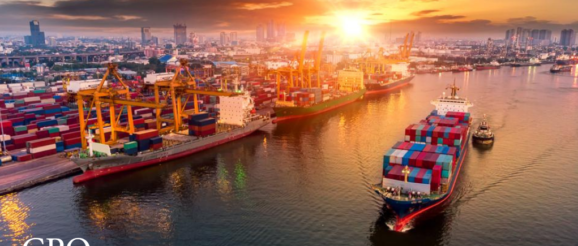Future of Supply Chain: Resilient Supply Chain Lessons | CPO INNOVATION

Covid 19- has interrupted global supply chains, leaving companies scrambling for alternate ways to keep operations running smoothly. However, businesses can learn lessons from this global disturbance. There is a need of creating flexible, diverse supply chains and technology will have a larger role to play to build up business resilience. Covid-19 was sudden and its full impact was unexpected and supply chains were unprepared.
Even as the world gears up to return to a ‘new normal’ in terms of life and work after the lockdown, several industries and businesses will be looking to implement the learning’s from the COVID-19 pandemic in order to prevent any future disruptions. The logistics and the supply chain industry has witnessed a series of challenges and has learnt its own set of lessons. From labor issues to mobility, technology and access to remote warehouses, lack of international trade, etc.
The spread of the new coronavirus, COVID-19, is being felt globally across operations in ways that are difficult to model and assess.
As globalization has increased, the world’s supply chains have become substantially more interconnected. Moreover, as emerging market economies have steadily come to account for a greater proportion of global GDP, goods often have more stages to pass through before reaching the end consumer.
From national lockdowns to closed airspace and borders, Covid-19 has placed a major strain on the world’s supply chains, including essential linkages relating to food and medicines.
For decades, low-cost supply and minimal inventory were the key tenets of supply chain management. But in an increasingly turbulent world, supply networks that are overly dependent on the lowest-cost supplier and minimal inventory levels can rapidly imperil the business. Analysis shows that companies with resilient supply chains grow faster because they can move rapidly to meet customers’ needs when market demand shifts.
Companies are now investing in supply chain resilience to minimize those risks and to benefit from improved efficiencies. Deployment of cloud-based platform, to provide real-time information on production and external demand to its supply chain control tower. Insights generated by advanced analytics help companies make right decisions quickly, it further allows the company to prepare contingency plans and relocate inventory in case of any natural disaster whereby the companies can also avoid the disruption and financial loss other companies suffered.
Companies that invest in supply chain resilience reduce product development cycles substantially, since production teams adjust faster to changes in market demand, revenue growth accelerates.
Leaders & Organizations are now exploring various changes to the existing supply chain model and new supply chain will definitely be different, some of them would be the following, which are to likely be implemented by most in order to create resilient supply chains:
The Covid-19 outbreak has exposed how vulnerable far-flung supply chains have become. What long passed for adequate flexibility is now subpar. Companies that begin investing today in a resilient supply chain will be best positioned to weather the next event that obstructs the global flow of goods.
The current crisis is an opportunity to reset a system that has relied on outdated processes. Creating smart and nimble supply chains is the key to building a global trade and investment network that’s capable of weathering future storms. Fundamentally rethinking on supply chains and thereby modifying the supply chain as a key business driver being the most important factor for an agile business to succeed.
